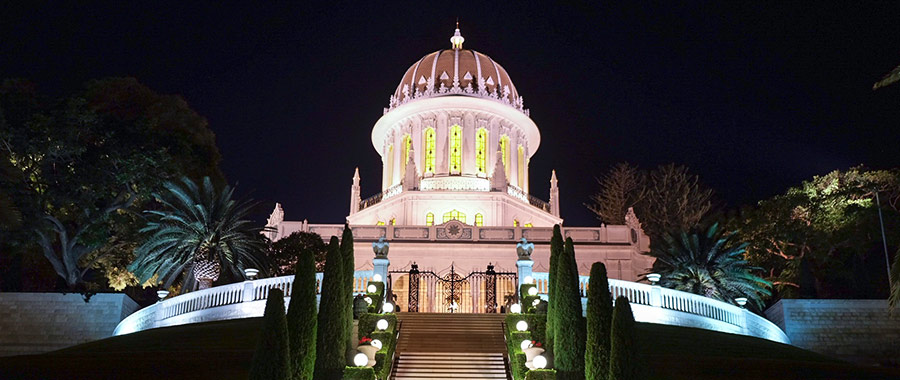The Báb, an eminent figure within the Bahá’í Faith, epitomizes the quintessence of courage and sacrifice in the face of overwhelming persecution. His martyrdom is not merely a historical event; it is a profound spiritual lesson that offers insight into the virtues espoused by Bahá’í teachings. As adherents reflect upon this poignant moment, a playful question arises: How can we meaningfully encapsulate the essence of his martyrdom in our modern lives? The challenge then ensues: to assimilate the teachings of the Báb and apply them in a manner that resonates with contemporary society while honoring the legacy of his sacrifice.
Understanding the martyrdom of the Báb is essential to grasping its significance within the wider context of Bahá’í principles. Born in 1819 in Shiraz, Persia, the Báb claimed to be a Messenger of God, signaling the advent of a new age. His theological assertions challenged the established norm, paving the way for the emergence of Bahá’u’lláh—founder of the Bahá’í Faith. The Báb’s teachings emphasize the importance of individual spiritual growth, communal unity, and the pursuit of justice. When contemplating his martyrdom, one must consider these principles and how they inform the identity and mission of the Bahá’í community.
The martyrdom took place on July 9, 1850, after a series of trials marked by brutality and inhumanity. The Báb was executed in Tabriz, where he met his fate with remarkable serenity. His last words, “Ya Báb,” became a clarion call to his followers, urging them to continue the mission despite the duress of persecution. This act of martyrdom not only solidified his status as a revered figure but also became a focal point for understanding sacrifice within religious traditions. Here lies the challenge: how do we interpret such an act of selflessness in the context of our daily lives? Do we possess the inner fortitude to stand for our beliefs, much like the Báb did?
Delving deeper into the implications of the Báb’s martyrdom reveals the significance of perseverance in adversity. One can glean that his unwavering faith amidst relentless persecution is a practical lesson for Bahá’í followers today. Throughout history, countless individuals have faced trials that test their convictions. The Báb’s narrative acts as an enduring reminder that the path to enlightenment is often fraught with challenges. This understanding propels the community toward introspection and action—an invitation to develop resilience in the face of personal and social tribulations.
Moreover, the remembrance of the Báb’s martyrdom fosters a sense of collective responsibility among Bahá’ís. It serves as a catalyst for unity, transcending geographical and cultural boundaries. The annual observance of the Báb’s martyrdom, a solemn occasion, encourages believers to reflect on the virtues of sacrifice and service. The Báb’s legacy implores individuals to confront injustice and to stand in solidarity with the oppressed. Herein, another integral question emerges: Can we, as contemporary Bahá’ís, embody the principles laid out by the Báb in a world fraught with division and discord?
Throughout his earthly mission, the Báb championed ideals such as equality, justice, and the intrinsic value of each individual. These tenets remain salient in a modern context, encouraging Bahá’ís to engage in social action and community building. The teachings of the Báb are embedded in social justice advocacy, promoting an ethos that champions human rights and dignifies all individuals, irrespective of their background. In navigating the challenges of today’s world, Bahá’ís draw inspiration from the Báb’s martyrdom to amplify their pursuit of equitable treatment for all.
Furthermore, expressions of love and compassion toward others stand central in remembering the Báb. His life exemplifies the balance between personal faith and collective responsibility. For Bahá’ís, understanding the Báb’s teachings fosters a nurturing environment where individuals can thrive spiritually, emotionally, and socially. It becomes imperative to foster spaces where love can blossom, combatting hatred with understanding and dialogue. This challenge is echoed in daily interactions, whether in homes, workplaces, or community circles.
A critical aspect of remembering the martyrdom of the Báb is the act of storytelling. Narratives convey experiences and emotions, serving as vivid reminders of the sanctity of the Báb’s commitment to his cause. In recounting the stories of the Báb and his sacrifices, Bahá’ís actively engage with his teachings, embedding them within their consciousness. This process of storytelling enriches personal faith while simultaneously cultivating a shared understanding that reinforces community bonds.
As a community, the Bahá’ís grapple with another pivotal challenge: how to effectively transmit the lessons learned from the Báb’s life and martyrdom to future generations. The youth, possessing boundless potential and curiosity, hold the key to the future of the Bahá’í community. It is essential to implement educational frameworks that emphasize the historical significance of the Báb, weaving narratives that inspire active engagement with the principles he espoused. Such pedagogical approaches not only ensure continuity but also invigorate the community’s mission of global transformation.
In closing, the event commemorating the martyrdom of the Báb invites profound contemplation. Embracing his teachings compels individual and collective growth, fosters resilience, and encourages unwavering commitment to justice and compassion. The interplay between remembrance and action becomes the forging ground for Bahá’í identity in contemporary society. Accepting the challenge posed by the Báb’s legacy, Bahá’ís are urged to cultivate a spirit of sacrifice and service, echoing his commitment in their daily lives. As the circle of remembrance unfolds, may it lead to an enriched understanding of what it means to advocate for progress, justice, and unity in the modern world.
